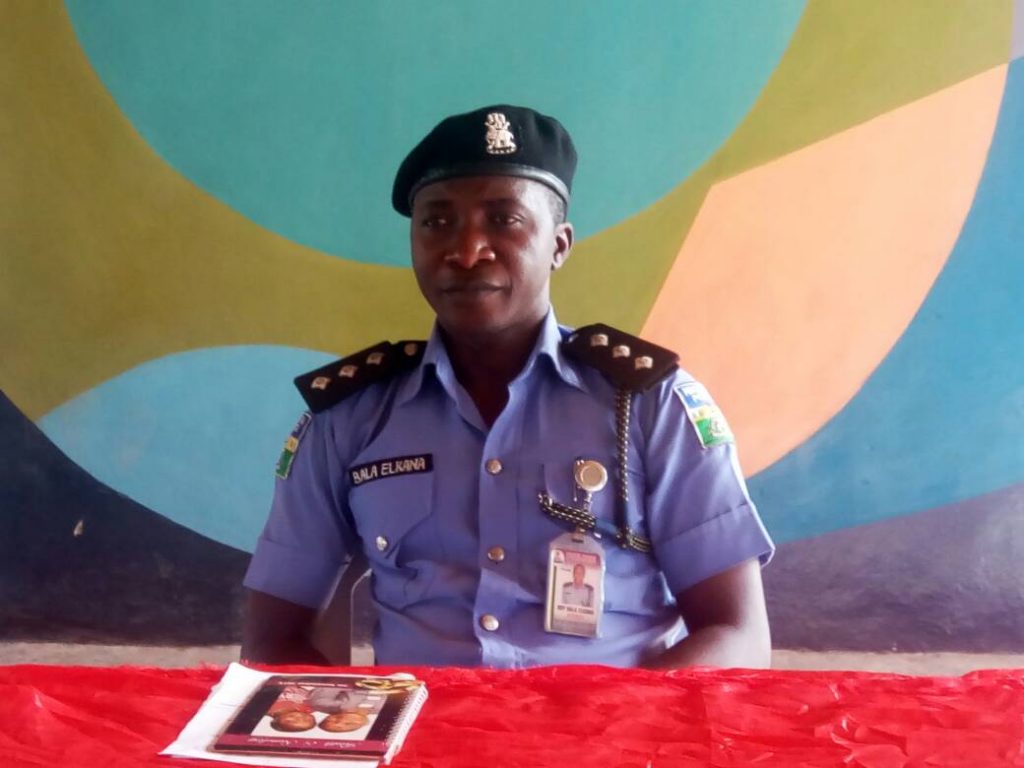Some foreign media organisations operating in the country have been derided for reporting the activities of Boko Haram insurgency from the comfort of the Federal Capital Territory.
Speaking Tuesday at this year’s Nigeria Union of Journalists Press Week, Akwa Ibom Council, DSP Bala Elkana, the Police Public Relations Officer in Akwa Ibom observed “It is only in Nigeria that Aljazeera will be reporting Sambisa Forest from Abuja. If they are courageous enough, let them go and cover it live. They will know that the kind of insurgency we have here is not like theirs.”
Elkana took a swipe on Nigerian mass media for using their reports to pummel the Boko Haram crisis into a war that has given the perpetrators verve to wreck more havocs in some parts of the country and helps to instill fear in the minds of unspecting members of the public, positing “If you think you can we can take you to Maiduguri for just three months to cover Sambisa forest and tell us what is happening there live.”
According to him, “When insurgency started in Nigeria, our media helped in escalating the war ignorantly. The media paid more attention to the activities of Boko Haram than the activities of the armed and other forces engaged in the war against Boko Haram, and the instrument terrorists use is fear. The terrorists know they can’t win the war but can use fear in the minds of the people. Once you are afraid to go to your place of worship, market or do what you should, they have succeeded.”
He bemoaned that “Media report now helps them to put more fear into the minds of the people, and Boko Haram became very powerful because the media gave them free platform, and if they ask you to make a report you say they must pay. Like the broadcast by the Boko Haram leader, the media did it free of charge, helping him to destroy our nation.
But am glad over the past two years the gentlemen of the press realize that they are reporting the wrong person. From magnifying the activities of Boko Haram to making the military look more powerful, Boko Haram went down. It is not the instrument of war but the media instrument.”
The PPRO described Akwa Ibom as being peaceful compared to some states in Nigeria, warning “It can be troublesome if we continue with the trends of some of the reports am seeing on the papers. Most of these newspapers are divided on political fronts. When I pick a newspaper I can say this is PDP, another APC. I can tell that this man is reporting for this man. There is no amount of money an individual can give that is worth the peace of your state. If this state experiences war, even the journalists cannot have a place to operate, am not sure majority of us here will come out to cover a war event.
Elkana told journalists to be wary of creating tension in their reportage, exhorting “Let us not create tension with our reports. I have also discovered one thing: a journalist has an issue with an individual; he feels the best way to settle it is using his newspaper to settle their differences. A journalist had an issue with a single policeman; he published almost two pages on it. Your paper is more precious than fighting a policeman with it.”
He averred that “crime reporting should be devoid of sentiments. Do not politicize security issues you will create more problems. In crime reporting you have to look at the 5Ws and H answer this and balance your story, that’s the first aspect.
The second one is what are you looking at ‘armed robbers invade a community’ what’s the difference between armed robbers and an ordinary thief. By the time ordinary thief moves into a community and you say armed robber, you look like somebody that does know what he’s reporting about. There is difference between stealing, robbery and armed robbery.”
Continued he “When a professional crime reporter writes and I go through it, I will commend such write-up because you have to know your work. You have to know the basis establishing that story and then you balance your write-up so that when someone reads it, he will know it written by a professional and not a write-up based on speculations.”
The PPRO stated “Some professional reporters will like to follow up a story to know the true position of it, what you have heard may be different from investigations made by the police. Most times what a person says, for you to balance your story, a professional reporter will call a person concerned from that organization: are you aware of this situation? What actually happened?”

